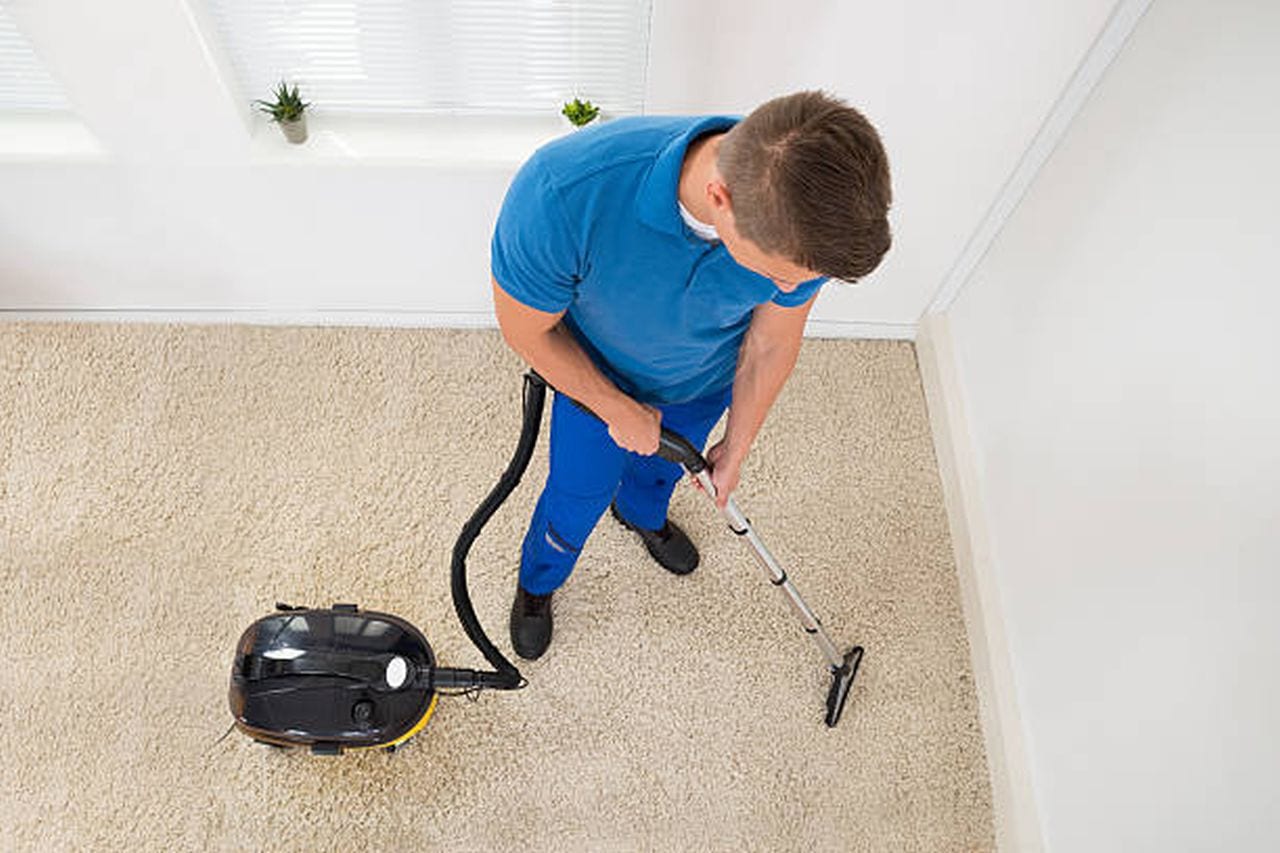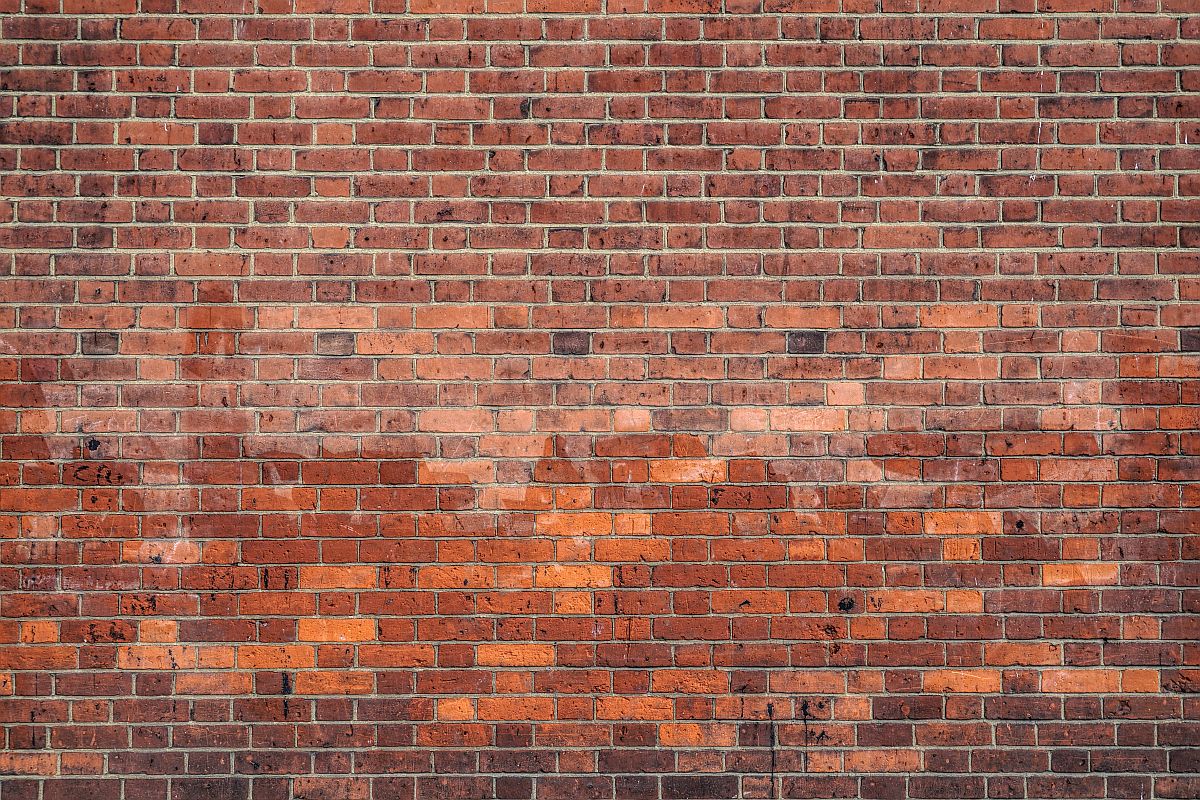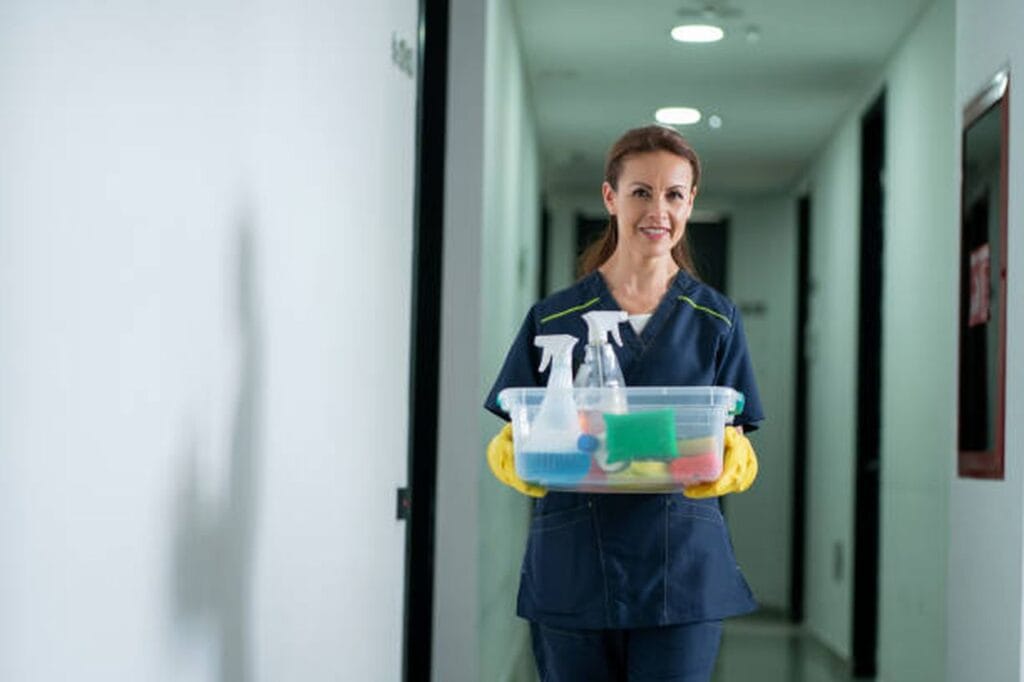One of the numerous difficulties that proprietors of residential cleaning businesses face is deciding which cleaning chemicals to use. Choosing the proper cleaning solution can be challenging due to the large variety of surfaces that need cleaning. Many homes had the same finishes a few decades ago. Formica worktops, glass or wood tables, and linoleum or carpet flooring were your only options in the past. The variety of modern surfaces, though, is staggering.
Corian, marble, granite, porcelain, travertine, stainless steel, chrome, and many more are all examples of popular surface materials. You and your cleaning staff could damage these surfaces seriously if you're not careful.
Furthermore, surfaces that are easily damaged are typically more expensive. This is why it is so important to do research before applying a chemical to a surface. The sorts of safe cleaning chemicals and which ones to avoid are discussed in this article.
Keep the Various Kinds of Surfaces in Good Condition
Hard surfaces
Among these are concrete, tile, stone, and glass. It's a popular material for making tables, floors, and walls. Here are some rules to follow when disinfecting hard floors:
Stone
We recommend using a moist cloth and a mild soap to clean stone surfaces. Don't use anything too abrasive or acidic on the surface. A professional stone cleaner can be used for a more thorough cleaning.
Tile
You can wipe off tile floors and walls with a moist cloth and mild soap. Use a grout cleaning solution and a scrub brush to remove grime and stains from the grout. Don't use harsh cleansers or scrub too vigorously to protect the tile and grout.
Glass
Wipe glass surfaces with a microfiber cloth and cleaner. Scratches can appear if you use paper towels or something similarly abrasive.
Soft Surfaces
Fabric, Carpet, and leather are all examples of such things. Furniture and upholstery makers frequently employ them. Here are some recommendations for washing pliable objects:
Carpet

Carpets need regular vacuuming to keep them clean. Steam and professional carpet cleaners can be rented for more in-depth cleaning. Spot-clean spills and stains with a clean cloth and mild soap.
Fabric
Clean fabric with a wet cloth and mild soap. Commercial fabric cleaners or professional upholstery cleaning services can be used for more in-depth cleaning. Harsh chemicals and rough cleaning should be avoided to prevent fabric damage.
Leather
Use a moist towel and a mild soap solution to clean the leather. Use a professional leather cleaner to get rid of tough stains. Cleaning leather with abrasive sponges or chemicals can ruin the material.
Wood Surfaces
Hardwood floors, cabinets, and furnishings are all examples of these things. Here are some rules to follow when cleaning wood:
Hardwood Flooring
Regular sweeping or vacuuming of hardwood floors is necessary to keep them clean. A moist towel and a mild soap solution wipe out the surface. Cleaning with too much water or harsh chemicals can damage your surface.
Cabinetry
Put some mild soap on a moist cloth, then wipe out the cabinets. Remove tough places using a wood cleaner and a soft brush. Abrasive cleansers and too much water might damage the surface, so use caution when cleaning.
Furniture
Use a moist towel and a mild soap solution to clean the furniture. Stiff patches can be removed using a wood cleaning and soft brush. Over-saturation might cause the surface to deteriorate, so be careful.
Metal Surfaces
Stainless steel, aluminium, and iron are all examples of such metals and metal alloys. They're common for homewares like appliances, fittings, and fasteners. Here are some rules to follow when polishing metal:
Aluminum
A moist towel and some mild soap can do the trick for cleaning aluminium. You can use a commercial aluminium cleaner for more stubborn stains. Scrubbing too vigorously or using abrasive cleaners might cause permanent harm to the surface.
Stainless Steel
Put mild soap on a moist cloth, then wipe down the stainless steel surfaces. Scrubbing with a non-abrasive brush and stainless steel cleanser helps remove stubborn stains. Scratches can appear if abrasive cleansers are used.
Brass
Brass may be cleaned with water and a mild soap solution on a cloth. Professional brass cleaners are available for more stubborn stains. Scrubbing too vigorously or using abrasive cleansers might damage the surface, so keep them to a minimum.
Copper
Moisten a cloth with a mild soap solution and wipe the copper surface. Commercial copper cleaners are available for more stubborn stains. Scrubbing too vigorously or using abrasive cleansers might damage the surface, so keep them to a minimum.
Plastic Surfaces
PVC, polycarbonate, and polythene are all examples of such substances. Containers, toys, and even packaging are common uses for them. The best way to clean plastic is to follow these steps:
Polycarbonate
Moisten a cloth with a mild soap solution and wipe down the polycarbonate surface. Use a commercial plastic cleaner for more stubborn spots. Scratches might appear if you use harsh cleaners or scrub too vigorously.
PVC
PVC surfaces can be cleaned with a damp cloth and mild soap. An industrial plastic cleaner is your best bet for removing stubborn stains. Scrubbing too vigorously or using abrasive cleansers might damage the surface, so keep them to a minimum.
Acrylic
Acrylic surfaces can be cleaned using a moist cloth and a light soap solution. An industrial plastic cleaner is your best bet for removing stubborn stains. Scratches might appear if abrasive cleaners or excessive scrubbing are used.
Painted Surfaces
Decorative paint finishes can be found on walls, ceilings, and furniture. The best way to clean a painted surface is to follow these steps:
Latex Paint
A moist towel and some mild soap can clean latex paint. You can use an industrial all-purpose cleaner on more stubborn spots. Scrubbing too vigorously or using abrasive cleaners might cause permanent harm to the surface.
Oil Paint
Oil paint can be cleaned with a moist cloth and a mild soap solution, like latex paint. You can use an industrial all-purpose cleaner on more stubborn spots. Scrubbing too vigorously or using abrasive cleaners might cause permanent harm to the surface.
Wallpaper
Use a moist towel and a mild soap solution to clean the wallpaper. Over-saturation might cause the surface to deteriorate, so be careful. Use a professional wallpaper cleaner on more stubborn stains.
Natural Stone Surfaces
Granite, Marble, and quartz are just a few of the materials in this category. They're a popular material for both floors and counters. Natural stone surfaces can be maintained by following these guidelines:
Granite
A moist towel and some mild soap are all you need to clean granite. Use a commercial granite cleaner on stubborn stains. Don't use any acidic cleaners on the surface.
Marble
Marble may be cleaned with a moist cloth and a light soap solution. Commercial marble cleaners are available for more stubborn stains. Cleaning with acidic products should be avoided since they may cause surface damage.
Limestone
Wipe limestone with water and a light soap solution to remove dirt or grime. Commercial limestone cleaners are available for more stubborn stains. Cleaning with acidic products should be avoided since they may cause surface damage.
Sandstone
Sandstone can be cleaned with water and a light soap solution. Commercial sandstone cleaners are available for more stubborn stains. Don't use any acidic cleaners on the surface.
Textured Surfaces
Brick, Stucco, and textured wallpaper all fit this category because of their uneven or rough surfaces. Guidelines for cleaning surfaces with textures are provided below.
Concrete
Use a pressure washer with a mild soap solution to clean concrete floors. Commercial concrete cleaners are available for more stubborn stains. Scrubbing too vigorously or using abrasive cleaners might cause permanent harm to the surface.
Brick

A moist cloth and some mild soap can do the trick for cleaning brick surfaces. Use a professional brick cleaner on more stubborn spots. Scrubbing too vigorously or using abrasive cleaners might cause permanent harm to the surface.
Stucco
A moist towel and a mild soap solution are all you need to clean stucco. Commercial stucco cleaners are available for more stubborn stains. Scrubbing too vigorously or using abrasive cleaners might cause permanent harm to the surface.
Mirrored Surfaces
Glare-reducing coatings on glass or plastic fall under this category. Some tips on how to clean various mirror finishes are provided below.
Regular Mirrored Glass
Normal mirror glass can be cleaned with Windex or soap and water. Scratches might appear if you use harsh cleaners or scrub too vigorously.
Antique Mirrored Glass
Cleaning antique mirrored glass requires more care than cleaning modern mirrored glass. Antique mirrors should be cleaned using a gentle washing solution and a damp cloth. Commercial glass cleaners can scratch your glass, so don't use them.
Acrylic Mirrored Glass
Acrylic mirror glass should be cleaned using a gentle soap solution and a wet cloth. Commercial glass cleaners can scratch your glass, so don't use them.
Beveled Mirrored Glass
Bevelled mirror glass requires the same care as acrylic mirrors and may be cleaned with a moist cloth and a mild soap solution. Commercial glass cleaners can scratch your glass, so don't use them.
What to Consider Before Cleaning
Material
Find out what the surface is composed of, as this will dictate what kind of cleaner to use and how to clean it. For instance, you would need a different method than cleaning a metal surface using the same method on wood.
Cleaner
Ensure the cleaner you pick is safe for the material you're sprucing up. It may be necessary to use specialised cleansers on surfaces like natural stone and antique mirror glass. Before using a cleaning, read the instructions provided by the manufacturer.
Scratch Resistance
Think about how easily the surface can be scratched. Use a delicate cloth and mild cleaner for scratch-prone surfaces like stainless steel or glass.
Surface Finish
Observe the surface quality. For instance, a painted surface with a glossy finish will need to be cleaned differently than one with a matte finish.
Water Spotting
Water spots are more noticeable on smooth surfaces like glass and stainless steel, so take care. After washing, dry the surface completely to avoid water marks.
Typical Household Cleaners and Their Functions
Here are some typical applications for the many types of surface-cleaning chemicals and products:
All-Purpose Cleaner
Applicable to various surfaces, including but not limited to ceramic tile, porcelain, glass, and stainless steel.
Tub and Tile Shower
Cleaner To remove hard water stains, soap scum, mineral deposits, and limescale from porcelain, ceramic tile, glass shower doors, chrome, stainless steel, and other metals.
Stainless Steel Polish
Dispensers, Sinks, grab bars made of brushed stainless steel or chrome, and laminated plastic surfaces like countertops can be cleaned and polished using this product.
Solid Surface Countertop Cleaner
There is no need to mix these products. Does not leave behind any residue or streaks. They won't rust countertops or other areas where food is prepared.
Non-Abrasive Cleanser
Both acids and bases are acceptable without scratching. It is used as a detergent or an industrial cleanser; it is also effective on glass, porcelain, and stainless steel.
Oven Cleaner
Cleans in either a hot or cold oven, penetrating even baked-on oil. Keep at room temperature for 5 minutes before wiping clean. Ability to clean stainless steel surfaces, barbeque grills, and broiler pans.
Conclusion
Because there are so many surfaces that need to be cleaned, finding the right cleaning tool can be challenging. These new surfaces are more expensive and can get damaged if they are not treated properly. They include ceramic, marble, granite, porcelain, travertine, stainless steel, and chrome. It's important to do the study before using a chemical on a surface and pick chemicals that are safe.
Concrete, brick, stone, and glass are all hard surfaces that need to be cleaned regularly with a damp cloth and mild soap. To clean grout between tiles, use a grout cleaner and a scrub brush. Wipe down the glass with a soft cloth and cleaner.
Soft surfaces, like fabric, carpet, and leather, need to be vacuumed and cleaned by professionals on a frequent basis. For leather, utilise a wet towel and a light soap mixture. It is best to use a damp cloth and mild soap solution on wooden floors. You can clean metal surfaces with an aluminium cleaner, a stainless steel cleaner, a non-abrasive brush, a brass cleaner, and copper cleaner.
A damp cloth and gentle soap can be used to clean plastic surfaces like PVC, polycarbonate, and polythene. Use a store-bought plastic cleaner on polycarbonate and a damp cloth and light soap on PVC. For plastic surfaces, use a damp cloth and a little bit of mild soap.
Picking the right cleaning tools for different surfaces is important for keeping them in good shape and making them last longer.
There are several ways to clean decorative paint finishes on walls, ceilings, and furniture. If you want to clean latex paint, oil paint, wallpaper, or natural stone surfaces like granite, marble, limestone, sandstone, brick, stucco, or mirror glass, use a damp towel and gentle soap.
For natural stone surfaces, don't use acidic cleaners instead, use a professional granite cleaner. To clean marble, use a damp cloth and a small amount of mild soap. To clean rock, use water and a little soap mixed together. To clean the rock, mix water and a little soap.
If the surface is rough, use a pressure cleaner with a mild soap solution. With a pressure washer and light soap solution, you can clean concrete floors. If you want to clean brick, use a wet cloth and mild soap. For stucco, use a wet towel and a solution of mild soap.
There are different ways to clean mirrored surfaces based on the material: cleaner, scratch resistance, surface finish, and water spots. Windex or soap and water can be used on shiny surfaces. A damp cloth and light cleaner can be used on matte surfaces.
Some common types of home cleaners are all-purpose cleaners, cleaners for tubs and tiled showers, polishers for stainless steel, cleaners for solid surface countertops, cleaners that don't scratch, and cleaners for ovens. Ceramic tile, porcelain, glass, and stainless steel are just some of the materials that these cleaners can work on. Before you use any cleaning method, you must read the manufacturer's directions.
Content Summary
- Choosing the right cleaning product is essential for different surfaces.
- Modern homes offer a diverse range of surfaces compared to decades ago.
- Protecting surfaces like Corian, marble, and travertine is crucial.
- Incorrect cleaning can damage expensive surfaces.
- Understanding safe cleaning chemicals prevents surface damage.
- Concrete, tile, stone, and glass fall under hard surfaces.
- Avoid acidic products when cleaning stone surfaces.
- Tile floors benefit from mild soaps and grout cleaning solutions.
- Microfiber cloths are best for cleaning glass to avoid scratches.
- Fabric, carpet, and leather are categorised as soft surfaces.
- Regular vacuuming maintains carpet cleanliness.
- Avoid harsh chemicals on fabric surfaces to prevent damage.
- Gentle cleaning ensures longevity for leather surfaces.
- Proper care of hardwood floors requires avoidance of excess water.
- Clean wood cabinetry with mild soap to avoid damage.
- Regularly clean furniture with a damp cloth and mild soap.
- Metals like stainless steel, aluminium, and iron have specific cleaning requirements.
- Aluminium surfaces can be maintained with mild soap.
- Stainless steel surfaces benefit from non-abrasive cleaning methods.
- Brass and copper require gentle cleaning to maintain shine.
- Plastics like PVC and acrylic need careful cleaning to avoid scratches.
- Painted surfaces, whether oil or latex, demand gentle cleaning.
- Avoid over-saturating wallpaper to maintain its quality.
- Granite, marble, and limestone are popular natural stone surfaces.
- Acidic cleaners can damage natural stone surfaces like marble.
- Textured surfaces like brick and stucco have unique cleaning needs.
- Pressure washing is suitable for cleaning concrete.
- Delicate care is essential when cleaning mirrored surfaces.
- Avoid abrasive cleaners on antique mirrored glass.
- Acrylic mirrors need gentle cleaning to prevent scratches.
- Before cleaning, always identify the material of the surface.
- Choosing the right cleaner for the material ensures safety.
- Be cautious of scratch-prone surfaces like stainless steel.
- Different finishes, such as glossy or matte, require varying cleaning methods.
- Dry surfaces properly to avoid water spots on smooth surfaces.
- All-purpose cleaners work on a range of surfaces, including glass.
- Use tub and tile shower cleaners for hard water stains and limescale.
- Stainless steel polish gives a shine to sinks and laminated surfaces.
- Solid surface countertop cleaners are residue-free.
- Non-abrasive cleansers are versatile for porcelain, glass, and stainless steel.
- Oven cleaners effectively penetrate baked-on oil.
- For a holistic cleaning approach, always consider the surface's finish.
- Prevention is key; avoid harsh chemicals on delicate surfaces.
- Regular maintenance extends the lifespan of your home surfaces.
- Using professional cleaning solutions can provide a more thorough cleaning.
- Always read manufacturer instructions before using cleaning products.
- Invest in specialised cleaners for surfaces like antique mirror glass.
- Understanding water spotting is crucial for stainless steel and glass.
- Differentiate between household cleaners for optimal results.
- Protect your investment by understanding surface cleaning needs.
Frequently Asked Questions About Cleaning Services
While some all-purpose cleaners work, using specialised products is best due to different cleaning requirements.
Look for carpet and upholstery cleaners designed to tackle specific stains, or hire a professional.
Choose a hardwood floor cleaner that is compatible with your flooring finish and avoids excessive moisture.
Yes, outdoor surface cleaners are available for decks, patio furniture, and other exterior surfaces.
Read product labels, wear appropriate protective gear, store products out of reach of children, and ensure proper ventilation when using strong chemicals.
